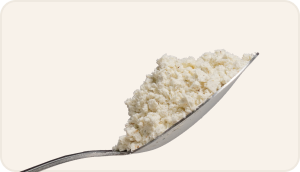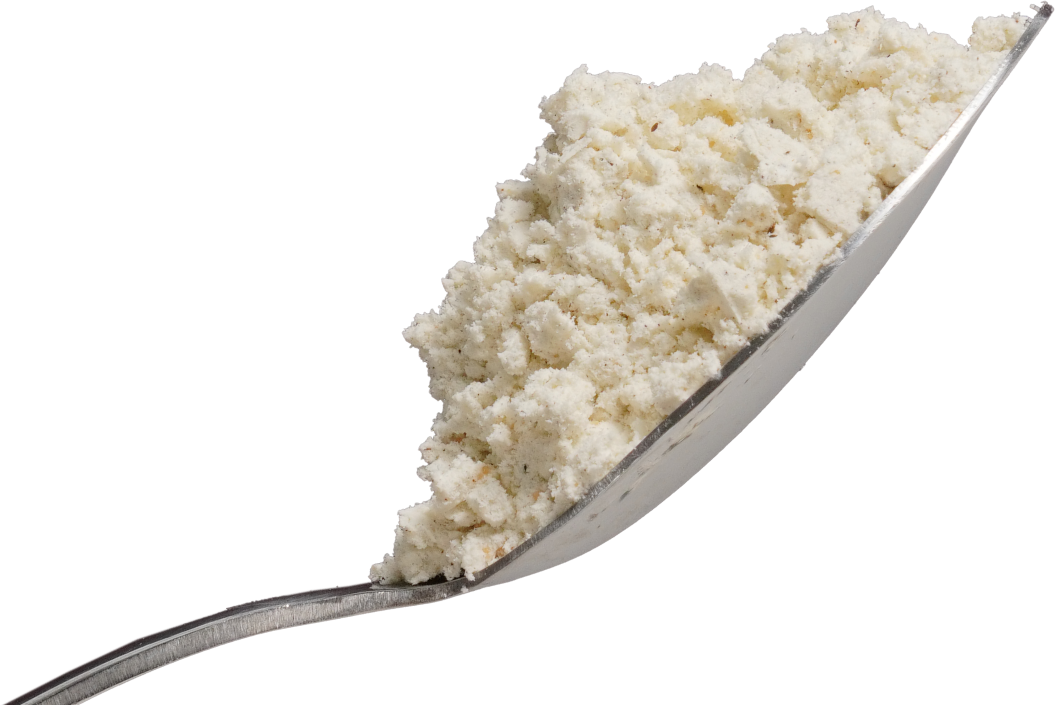GRAB A PACK
Not Sure?
Try Our Sample Pack
Why Egg Protein is a Great Post-Workout Food?
Introduction
Protein powders have become a popular supplement for athletes, fitness enthusiasts, and health-conscious individuals looking to increase their protein intake. They can help with muscle recovery, growth, and weight loss.
However, finding a protein powder that is clean and effective can be a challenge. This is where Happy Gut comes in. Nowell founded Happy Gut, a health and wellness brand offering a protein powder supplement made with natural ingredients. Their product is free from soy, gluten, artificial colours and sweeteners, lactose, and sugar alcohols, making it an excellent option for sensitive stomachs or allergies.
One of the critical ingredients in Happy Gut's protein powder is egg white protein. Egg protein is a high-quality source containing all the essential amino acids needed for muscle recovery and growth. It is also easily digestible, making it a good option for those with digestive issues.
In this article, we will explore the benefits of egg protein as a supplement, how it compares to other protein sources, and how to incorporate it into your post-workout routine. Whether you're a serious athlete or just looking to improve your overall health and wellness, incorporating egg protein into your diet can be a great way to support your fitness goals.
What is Egg Protein?
Egg protein is a high-quality protein that is derived from eggs. It is a complete protein, which means it contains all nine essential amino acids the body cannot produce on its own and must be obtained through the diet.
Egg protein can be found in different forms, such as egg white and whole egg protein. Egg white protein is made by separating the egg white from the yolk and drying it into powder. Complete egg protein, on the other hand, is made by drying and powdering the entire egg.
Egg protein is popular for those seeking a clean and effective protein source. It is also a good option for those with allergies or intolerances to other types of protein, such as whey or soy. Egg protein is easily digestible and has a high bioavailability, meaning the body can efficiently use the protein for muscle recovery and growth.
Nutrients in Egg White
Egg white is a nutrient-dense food that is low in calories and protein. A large egg white contains around 3.6 grams of protein and only 17 calories. In addition to protein, egg white also contains other essential nutrients such as:
- Vitamin B2 (riboflavin): necessary for energy metabolism and healthy skin
- Vitamin B12 (cobalamin): essential for brain function and the production of red blood cells
- Selenium: a mineral that has antioxidant properties and helps with thyroid function
- Phosphorus: essential for bone health and energy metabolism
- Potassium: important for heart health and blood pressure regulation
Egg white is also a good source of choline, an essential nutrient for brain and liver health.
Because of its low calorie and high protein content, egg white is an excellent option for those looking to increase their protein intake without consuming too many calories. It can also be a good option for those on a weight-loss or calorie-restricted diet.
Absorption of Egg Protein
Protein is an essential nutrient crucial in many bodily functions, including muscle repair and growth. When we consume protein, our body breaks it down into amino acids, which are absorbed into the bloodstream and used by the body for various functions.
The speed at which our body absorbs protein can vary depending on the source of protein. Generally, animal-based proteins such as eggs are absorbed more quickly than plant-based proteins.
Egg protein is a highly bioavailable protein source, which means it is easily absorbed by the body and utilized for muscle recovery and growth. This is partly because egg protein has a high leucine content, an essential amino acid for muscle protein synthesis.
Proper protein absorption is essential for post-workout recovery, allowing the body to repair and rebuild muscle tissue damaged during exercise. Incorporating egg protein into your post-workout routine can be a convenient and effective way to support muscle recovery and growth.
Benefits of Egg Protein for Post-Workout Recovery
When it comes to post-workout recovery, protein is a critical nutrient that is necessary for repairing and building muscle tissue. Egg protein, in particular, offers several benefits for post-workout recovery.
One of the main benefits of egg protein is its high quality and bioavailability. As mentioned in the previous section, egg protein is easily absorbed by the body and utilized for muscle repair and growth. This makes it an ideal protein source for those looking to optimize their post-workout recovery.
In addition, egg protein is rich in leucine, an essential amino acid critical for muscle protein synthesis. Leucine has been shown to stimulate muscle protein synthesis more than other amino acids, making it a necessary nutrient for post-workout recovery.
Another benefit of egg protein is that it is low in fat and carbohydrates, which makes it an ideal option for those looking to increase their protein intake without consuming too many calories. This can particularly benefit those on a weight-loss or calorie-restricted diet.
Lastly, egg protein is an excellent option for those with allergies or intolerances to other familiar protein sources such as whey or soy. Because egg protein is free from lactose, it can be a good option for those with lactose intolerance. It is also free from gluten and soy, making it a good choice for those with allergies or sensitivities to these ingredients.

Egg Protein vs. Other Protein Sources
Several types of protein powders are available on the market, each with advantages and disadvantages. Here, we will compare egg protein to other familiar protein sources such as whey, soy, and casein.
Whey Protein
Whey protein is one of the most popular protein powders derived from milk. It is a fast-digesting protein quickly absorbed by the body, making it an ideal option for post-workout recovery. Whey protein is also rich in leucine, which makes it a good protein source for muscle protein synthesis.
However, whey protein is unsuitable for those with lactose intolerance or milk allergies. It is also not suitable for vegans or those on a plant-based diet.
Soy Protein
Soy protein is a plant-based protein that is derived from soybeans. It is a complete protein that contains all essential amino acids and is a good option for vegetarians and vegans.
However, some people may have soy allergies or sensitivities, making it challenging to consume soy protein. In addition, soy protein may not be as adequate as whey protein for muscle protein synthesis.
Casein Protein
Casein protein is another protein powder that is derived from milk. It is a slow-digesting protein absorbed by the body over an extended period. This can make it a good option for those looking for a sustained protein release throughout the day or night.
However, casein protein is unsuitable for those with lactose intolerance or milk allergies like whey protein. It is also less effective than whey protein for post-workout recovery.
Egg Protein
As we have discussed, egg protein is a high-quality protein easily absorbed by the body. It is also low in fat and carbohydrates, making it a good option for those looking to increase their protein intake without consuming too many calories.
In addition, egg protein is a good option for those with allergies or intolerances to other familiar protein sources such as whey or soy. It is free from lactose, gluten, and soy, making it a versatile and convenient option for many people.
Overall, while each protein source has advantages and disadvantages, egg protein is an excellent option for those looking for a clean and effective protein powder that is easy to digest and suitable for various dietary needs.
How to Incorporate Egg Protein into Your Post-Workout Routine
There are many ways to incorporate egg protein powder into your post-workout routine. Here are some ideas to get you started:
- Smoothies: A popular choice, blending egg protein powder with your favourite fruits and vegetables creates a nutritious and protein-packed smoothie.
- Pancakes or Waffles: Adding egg protein powder to your favourite pancake or waffle recipe can boost your protein. Additionally, you can use egg protein powder as a flour substitute in many baking recipes.
- Oatmeal: Mixing egg protein powder into your morning oatmeal can create a filling and nutritious breakfast.
- Protein Bars: You can make protein bars by combining egg protein powder with nuts, seeds, and dried fruit.
- Shakes: Mixing egg protein powder with milk or water makes for a quick and easy protein shake.
Remember to read the instructions on your egg protein powder to determine the recommended serving size and usage. Additionally, consuming enough water when using protein powder is essential as it can cause dehydration if not adequately hydrated.

Digesting Protein: What You Need to Know
Digesting protein is a necessary process in the body after consuming food. When you consume protein, your body breaks it down into amino acids, which are the building blocks of muscle tissue. These amino acids are then absorbed into the bloodstream and transported to different body parts, where they are used for muscle repair and growth.
The rate at which the body absorbs protein depends on several factors, including the type of protein consumed, the quantity consumed, and individual characteristics such as age, gender, and overall health. Egg protein, in particular, is known for its high absorption rate, making it a popular choice for post-workout recovery.
However, some people may experience digestive discomfort when consuming certain types of protein. This can include bloating, gas, and stomach cramps. In some cases, this may be due to an intolerance or allergy to a specific type of protein, such as lactose intolerance or soy allergy.
If you experience digestive issues after consuming protein, consult your doctor or a registered dietitian to determine the cause and find a suitable alternative. Additionally, it's essential to stay hydrated when consuming protein, as adequate water intake is necessary for proper digestion.
Overall, incorporating protein into your diet can have many benefits for muscle recovery and overall health. You can support muscle repair and growth while promoting overall wellness by choosing high-quality protein sources like egg protein and incorporating it into your post-workout routine.
Conclusion
In conclusion, egg protein is a high-quality source of protein that can be an effective supplement for post-workout recovery. It's easily absorbed by the body and provides the amino acids needed for muscle repair and growth. Additionally, egg protein is a good option for those with sensitive stomachs or allergies, as it's free from common allergens like lactose and soy.
When comparing egg protein to other familiar protein sources like whey, soy, and casein, it's essential to consider each protein type's advantages and disadvantages. While each style has unique benefits, egg protein stands out for its high absorption rate and easy digestibility.
Incorporating egg protein into your post-workout routine is easy and can be done in various ways, such as mixing it into a smoothie or adding it to a recipe. Doing so can support muscle recovery and growth while promoting overall wellness.
However, if you experience digestive discomfort after consuming protein, it's essential to consult a healthcare professional to determine the cause and find a suitable alternative.
Overall, Happy Gut's egg white protein powder offers a clean and effective option for those looking to supplement their diet with high-quality protein. Natural ingredients and no artificial additives make it an excellent choice for anyone promoting a healthy and happy lifestyle.


















